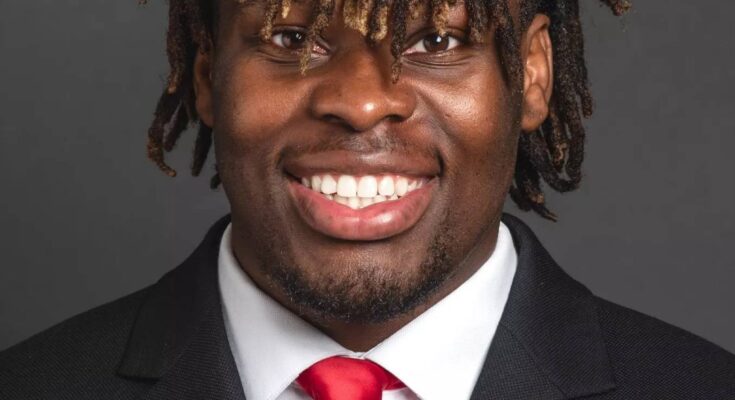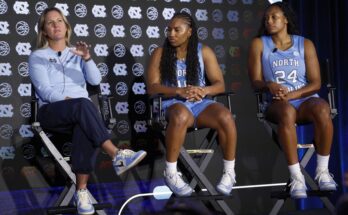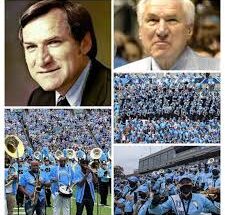The top-ranked American football recruit picks the Oklahoma Sooners over Florida and Tennessee.
The top-ranked American football recruit in the 2025 class has made his decision, and it’s a monumental one for the Oklahoma Sooners. In a recruiting battle that captivated fans and analysts across the country, Michael Fasusi, the five-star offensive tackle from Lewisville, Texas, announced that he would be committing to Oklahoma, turning down equally determined and heavily invested efforts from both Florida and Tennessee. The commitment is a seismic shift for a program that is now entering a new phase of competition in the SEC and speaks volumes about Oklahoma’s ability to win high-stakes recruiting battles against fellow SEC contenders. For Fasusi, it was about more than just facilities or flash; it came down to the coaching staff, development, culture, and the trust he built over time. This wasn’t a spur-of-the-moment decision but rather the result of months of visits, communication, film breakdowns, and relationship building.
Fasusi’s recruitment drew national attention because of his rare combination of size, athleticism, and intelligence on the field. Standing 6-foot-5 and weighing over 300 pounds, he anchors the offensive line with grace and power, showing quick feet in pass protection and dominant leverage in the run game. His high school film is a highlight reel of pancake blocks, textbook footwork, and eye-popping mobility for someone his size. He was courted by virtually every powerhouse in college football, but when his list narrowed to Oklahoma, Florida, and Tennessee, the recruiting trail intensified. Each school offered a compelling case. Florida’s tradition of developing elite offensive linemen, their SEC pedigree, and Billy Napier’s player-first philosophy were significant selling points. Tennessee, meanwhile, had the advantage of playing an aggressive offensive style under Josh Heupel, offering Fasusi the chance to be a key building block on a fast-paced, high-output team. Both schools made multiple visits, hosted Fasusi and his family on official visits, and stayed in close contact with his coaching staff. But it was Oklahoma that won out in the end, and the Sooners’ pitch was clear: play early, develop under elite coaching, and be a cornerstone of the program’s transition into the SEC.
What set Oklahoma apart in Fasusi’s eyes was the program’s alignment—from head coach Brent Venables down to the offensive line staff, the communication was consistent, detailed, and sincere. He was shown how he’d be used in multiple schemes, how his skills would translate to the next level, and most importantly, how the staff intended to push him to reach his ceiling. Offensive line coach Bill Bedenbaugh played a pivotal role. Known for developing rugged, technically sound linemen who go on to the NFL, Bedenbaugh’s track record resonated with Fasusi. Their film sessions were reportedly in-depth and challenging, which the recruit appreciated. It wasn’t fluff or simple recruiting pitches. It was detailed, position-specific coaching that made Fasusi feel like a valued future contributor rather than just a high-profile get. That was the edge that ultimately tipped the decision. Fasusi’s family also felt a level of comfort and trust with the Oklahoma staff, sensing a stability and vision that aligned with their long-term goals.
This decision has immediate and long-term ramifications for Oklahoma football. First, it sends a clear message to the rest of the SEC and the country: the Sooners can win battles for elite national talent. That wasn’t always guaranteed after their move from the Big 12, where skeptics wondered whether Oklahoma could maintain recruiting traction while facing the grind of the SEC. Fasusi’s commitment answers that question with authority. His presence also boosts Oklahoma’s already strong 2025 recruiting class, which was hovering just outside the top ten and now has the potential to surge into the top five by signing day. He gives Oklahoma a plug-and-play left tackle option with the potential to start or at least contribute early in his college career, which is a rarity at that position. It also gives the program a stabilizing force on an offensive line that will need to hold its own against some of the nastiest pass rushes in college football.
For Florida and Tennessee, the loss of Fasusi is significant. Both schools invested substantial time and resources into his recruitment. Florida had been building momentum after a strong 2024 season and was hoping to make Fasusi the crown jewel of its class. Billy Napier and his staff had hosted Fasusi multiple times, and the buzz around Gainesville was optimistic heading into the final stretch. Tennessee, likewise, had built what many believed was a strong connection. Fasusi had spoken publicly about his respect for Heupel and the trajectory of the program. Their facilities, player development model, and SEC experience were all pluses. But in the end, neither program could match the totality of Oklahoma’s pitch. It wasn’t just about depth charts or NIL packages; it was about fit, vision, and connection.
Beyond the headlines and recruiting rankings, Fasusi’s decision also speaks to the changing landscape of college football. With the transfer portal, NIL, and the growing professionalization of college athletics, recruits are making decisions with increasing sophistication. Families are consulting with advisors, film analysts, and even former players. They’re not just looking at playing time or helmets on the wall—they’re looking at offensive schemes, position-specific coaching, mental health resources, and preparation for life after football. Fasusi and his camp approached this process with professionalism and maturity, treating it as a major life decision rather than just a football move. That attitude earned him respect across the recruiting world, even among fans of the schools he didn’t choose.
For Oklahoma fans, this is a moment to savor. The Sooners have long been a storied program, but there were lingering questions about whether they could maintain that edge as they adjusted to a new conference. With Fasusi in the fold, the answer appears to be a resounding yes. His commitment not only elevates the 2025 class but also helps in recruiting other top targets. Elite players want to play with other elite players. When someone of Fasusi’s caliber commits, it signals to other prospects that Oklahoma is building something special—and that’s often how great classes snowball into championship contenders. The Sooners are also likely to use this commitment to energize their fan base, alumni, and boosters. It provides a tangible sign of momentum as they navigate the new realities of SEC competition.
The road ahead for Fasusi won’t be easy. The SEC is filled with elite edge rushers, defensive coordinators who scheme creatively, and game environments that test every fiber of a player’s preparation. But those are precisely the challenges Fasusi embraced when he chose Oklahoma. He’s not running from pressure—he’s walking into it with confidence and the belief that he can be great. If he stays healthy, stays focused, and continues to develop, there’s little doubt that he will be hearing his name called early in a future NFL Draft. The foundation is there, and now it’s about putting in the work to build something great.
As recruiting seasons go, this one will be remembered for a long time, especially by those in Norman. It’s not every year that you land the top-ranked offensive tackle in the nation. It’s even rarer to beat two SEC peers to do it. Michael Fasusi’s commitment to the Oklahoma Sooners marks not just a victory on the recruiting trail but a turning point for a program that is dead set on proving it belongs among college football’s elite. In the coming years, as Fasusi suits up and takes the field, Sooner Nation will watch with pride, knowing that this was more than just a commitment. It was a statement.



